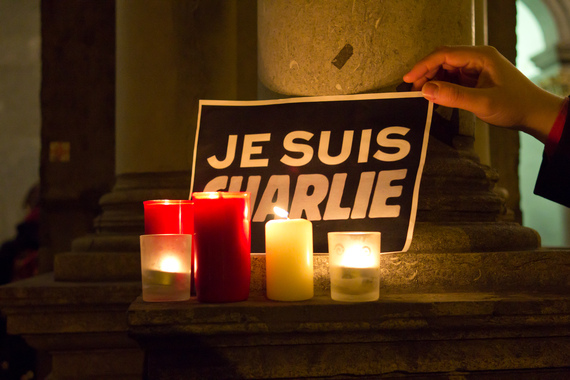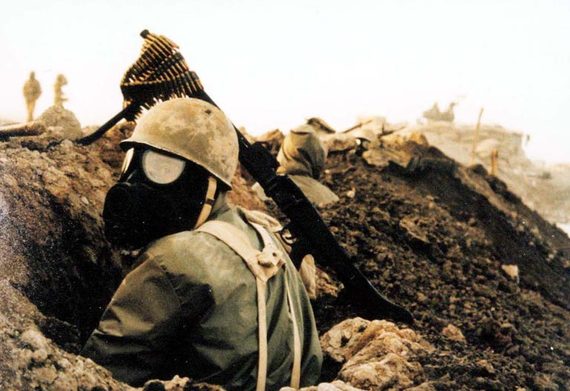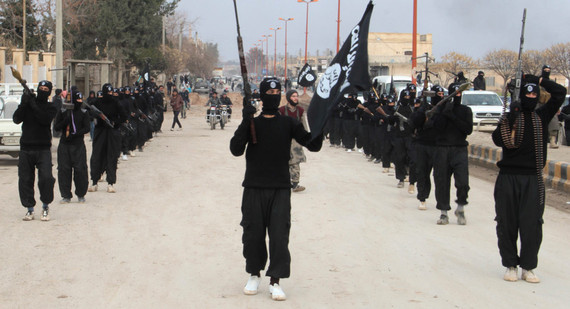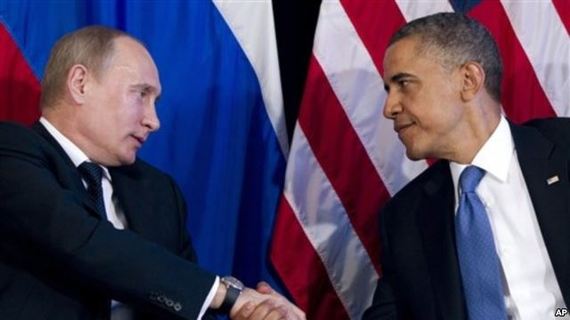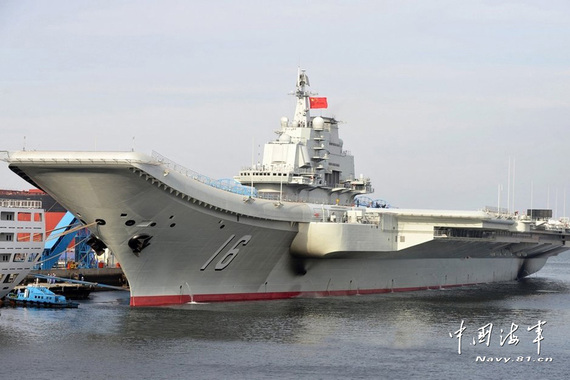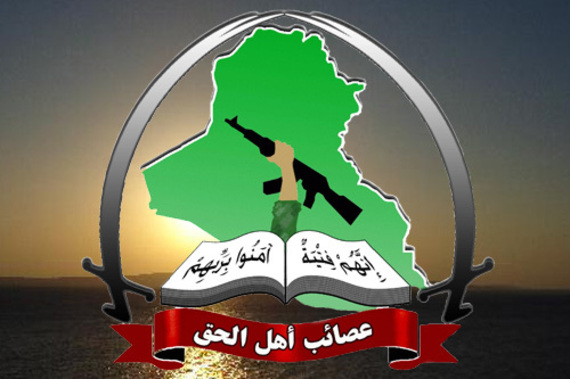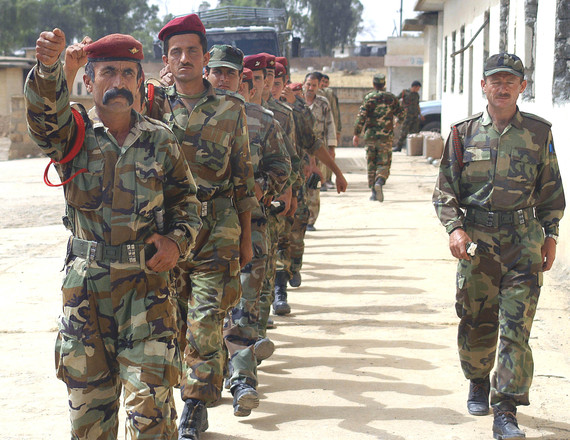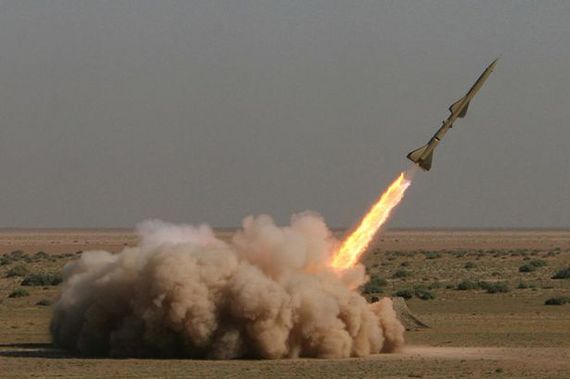Je Suis Charlie Sign at Cologne Rally for the Victims of the Charlie Hebdo Attack
In response to the terrorist attack on the editorial offices of the French satirical weekly Charlie Hebdo and the subsequent attack on the kosher market Hyper Cacher, Washington dispatched singer-song writer James Taylor to Paris to perform at a special tribute event held at the Hotel de Ville, the city hall of Paris. To the best of my knowledge this was the first time that the United States had responded to a terrorist attack on a close ally with a musical performance. The French found the whole response perplexing. Many Americans were embarrassed.
Initially, I admit, I was less than thrilled by the White House's response. With the benefit of hindsight, I've come to conclude that the issue was not the nature of the response, but rather the choice of artist and repertoire. Don't get me wrong -- I like James Taylor and his music. He reminds me of college and misspent youth. But given the gravity of the situation, I think we should have responded with one of our "big guns." I would have sent Kenny Rogers.
On the way back from Paris, Kenny could have stopped in Washington and swung by the White House to host a seminar on foreign policy. What would Kenny Rogers, quintessential American country music star and budding theorist of international politics have advised the foreign policy minions at the White House? I'm so glad you asked. No doubt he would have told them... "You've got to know when to hold 'em, know when to fold 'em, know when to walk away, and know when to run." Pity he didn't have the chance.
Fifteen years of American foreign policy in Iraq has been an unmitigated disaster. It is a failure that cuts across the usual political divide of Democrats versus Republicans, Liberals versus Conservatives or Progressives versus whatever. In retrospect, we would have been far better off leaving Saddam Hussein in place. Not because in the end he had any redeeming features -- he did not -- but because, from the standpoint of American interests in the area, everything that has followed has been worse.
It's hard to know what is the most laughable: the neocon, cold war retreads, who, having watched one to many World War II flicks, genuinely thought that American troops entering Baghdad would be greeted by cheering throngs of Iraqis, or those uber-cool, detached, unemotional 21st century pragmatists who honestly believed they would be cheered by those same throngs when they left. Neither happened. Whatever cheering Iraqi politicians did was limited to Uncle Sam's checkbook. It garnered standing room only crowds of admirers, and thunderous applause every time it was flipped open.
Critics on both the left and the right have been quick to excoriate the other side. Republican stupidity, Democratic naiveté, international oil, not to mention that "vast right wing conspiracy" or its half-brother, the "great left wing conspiracy," plus a half-century of misguided Middle East foreign policy have all figured prominently in those denunciations. In reality, history is too complex a phenomenon to reduce to the consequences of one independent variable. Invariably it is the result of the interaction of multiple variables whose complex and often unanticipated results are as much shaped by good intentions and devious intent as they are by their unintended consequences. It may be emotionally satisfying to point to a single cause and proclaim a self-satisfying "got you," but to do so is intellectually dishonest and historically inaccurate.
The American intervention in Iraq was prompted by the belief that Hussein had developed a vast arsenal of chemical weapons of mass destruction (plausible given the fact that he had used chemical weapons during the war with Iran and against Shia rebels in the south and Kurdish rebels in the north); that he was developing atomic weapons and was, according to one report, possibly only weeks away from having useable atomic bombs (laughable to the extreme, only the suggestion that he had obtained such weapons from the tooth fairy would have been any more farfetched); that he was developing biological weapons (plausible that he was dabbling into such weapons, but not a shred of evidence that they were even remotely close to weaponizing any such research); and purported links to al-Qaeda (also plausible, but given the disdain that bin-Laden had for the Ba'ath party and "secular Arab socialists," also highly unlikely). I will leave it to future historians to decide whether the invasion of Iraq in 2003 represented a colossal failure of intelligence or an example of an exercise in a mass, hysterical self-deception at the highest levels of the American and British governments.
The consequences of that invasion are well known. The Hussein government was overthrown and replaced with a Shiite-dominated government. Iraq was wracked by a Shiite-Sunni civil war fueled by militant Sunni Salafist organizations directed initially at both American and coalition military forces and the Shiite government and its police and military forces, and later especially against Iraq's Shiite civilian population as well. Despite a brief interlude of relative peace from 2010 to 2012, violence between Iraq's Shia and Sunni communities erupted again leading to the rise of the Islamic State of Iraq and the Levant (ISIL) and eventually its evolution into the organization known as Islamic State (IS).
Over the course of 2014, ISIL and then IS took control of most of western Iraq, and the majority of the population centers in the region known as the Sunni Triangle, in central Iraq. Mosul, the second largest city in Iraq, although not technically in the Sunni Triangle, was also taken. At one point, in late summer, it looked as if the city of Baghdad itself would fall to IS militants. Only the intervention of American air power and Iranian Revolutionary Guard and Quds force units and the mobilization of Shiite militias stemmed the onslaught from Islamic State. To be clear, the conquest of Baghdad would have been no easy matter and it was by no means inevitable. Nonetheless, the combination of airpower and additional ground forces stopped the Islamic State's further advance eastward.
The United States now finds itself in a difficult dilemma. American airpower can punish Islamic State. It can erode its military capabilities, strike at its concentrations of men and materials, and help to halt its further advance. Without boots on the ground, however, air power alone is insufficient to roll back the territorial conquests of Islamic State. Having pulled American troops out of Iraq, despite the warnings of many of its own military advisors that such an action was premature, the White House now finds it politically suicidal to reintroduce large numbers of American ground troops to active combat in Iraq, so that they can refight the same battles for the same cities that American soldiers died for once before to stabilize Iraq a decade ago.
Islamic State Militants
Instead, we have quietly forged a de facto alliance with Iran and with its Shiite militia proxies to support the American air intervention and to stiffen the resolve and military effectiveness of the Iraqi Army to resist any further expansion of Islamic State and to begin to roll back its territory. This new cooperation is coming at a time when the White House is seeking to normalize American relations with Iran by trying to reach a "comprehensive accord on the Iranian nuclear program." Those negotiations are primarily occurring in the context of ongoing negotiations between Iran and the P5+1 committee, a United Nations Security Council sanctioned group consisting of the United States, Russia, China, France, United Kingdom, and Germany.
The first five are all permanent members of the UN Security Council, Germany is currently a member but not a permanent one, hence the P5+1 designation. In addition, there are also ongoing discussions between representatives of the U.S. and Iranian governments. A successful conclusion to the negotiations between Iran and the P5+1 would result in the ending of sanctions against Tehran and hasten the process of reconciliation between Washington and Tehran.
Many of America's European allies, as well as its traditional allies in the Middle East, including such disparate allies as Israel and Saudi Arabia, have expressed concern that in its desire to normalize relations with Tehran, Washington will accede to the eventual acquisition of nuclear weapons by Iran and to the Iranian government's agenda of political Shiism. That agenda is seen as destabilizing to the Middle East in general and to the Gulf States in particular.
The overthrow of the Hussein government has already eliminated an existential threat to Iran resulting in its emergence as the principal regional power in the Persian Gulf and in the creation of a broad arc of Iranian influence that runs across Iraq, Syria and Lebanon to Gaza and which, with the success of the Houthi rebellion in Yemen, now has an important outpost on the other side of the Arabian peninsula.
Moreover, it is hard to put aside the concern that the White House's determination to reach an agreement with Iran is driven in part by a desire to beef up an otherwise dismal foreign policy résumé. The Obama administration has little to show for six years of foreign policy.
The reset with Russia proved to be a short circuit. To be clear, Russian aggression against its neighbors has been the primary cause for the steady deterioration of U.S.-Russian relations, but initial American ambivalence in the face of Russian aggression against its smaller neighbors was also a contributing factor. Vagueness and ambivalence have a role to play in the conduct of diplomacy but in the face of aggression they often times serve to encourage and validate "bad behavior." That was the lesson of Munich and the desperate attempt to secure "peace in our time." It is a lesson that the West continues to forget at its peril. It is a lesson whose refresher course is often paid for with blood and capital. The fact is that the nations of Eastern Europe are more uncertain about their future today than at any time since the signing of the Molotov-Ribbentrop Pact in 1939.
Likewise, the pivot to Asia proved to be a pivot to nowhere. To be fair, the United States did obtain a commitment from China to reduce its carbon emissions. Does that mean that the Chinese navy will be in the market to buy carbon credits to offset its expanded deployment in the South and East China Seas? Will the lasting legacy of "the pivot" be the 21st century concept of "carbon neutral hegemony?" No doubt China's neighbors will gain solace from the realization that the expansion of Chinese military power on East Asia will be accomplished without an appreciable increase in carbon pollution.
When it comes to the Middle East, the Obama administration presents a veritable smorgasbord of policy disasters. Where does one start? Let's see, there was the overthrow of the Gaddafi regime where the White House pioneered the concept of "leading from behind" or was that "leading with their behind?" Bear with me, all of this 21st century "cool hand Luke," detached, unemotional uber pragmatism is a little hard for me to keep straight sometimes.
Then there was the infamous red line we drew in the sand in Syria when we warned Assad against the use of chemical weapons against the militants looking to overthrow his regime. He crossed it with impunity. The White House forgot where they had drawn it and conveniently erased it. Rule number one at the Obama White House: When writing down key principals of U.S. foreign policy be sure to always use a pencil -- easier to erase that way.
Let's not forget the ongoing and very public spat with Israeli Prime Minister Netanyahu. I'm not a big fan of Netanyahu. I think that his policy of continuing to build Israeli settlements in the West Bank is ultimately further destabilizing the region and makes a realistic Israeli-Palestinian peace accord that much more difficult to reach. Subjecting the democratically elected leader of a small state to petty humiliations is beneath the dignity of a great power, however, and it demeans the office of the presidency regardless of the political affiliation of the person who holds it. For all our faults, we are, and should be, better than this.
To his credit, President Obama did win the Nobel "We're So Glad You're Not George W. Bush" Peace Prize for... well for not being George Bush, I guess. That's an accomplishment he shares with 350 million other Americans. Since George W. is constitutionally barred from ever running for president again, future American presidents should have a lock on this prestigious prize. Not sure if Jeb Bush would qualify. He isn't George W. after all; still the Nobel Peace Prize Committee might find it traumatizing to give it to him. He may have to settle for an honorable mention.
Last, but not least, there was the recent opening to Havana. A fresh new approach to our relations with Cuba and an end to a half-century of myopic "containment." That seems to be going nowhere also as the Castro brothers have concluded that Washington needs good relations with Havana more than Havana needs them with Washington. They have an impressive list, starting with the turnover of the Naval Base at Guantanamo Bay and a demand for reparations for the damage that the American embargo inflicted on Cuba as a prerequisite to restoring relations. Honestly, you can't make this stuff up. Don't hold your breath on a breakthrough with Cuba anytime soon, not unless the White House does something really shortsighted.
If President Obama were still a student at Harvard Law and U.S. Foreign Policy a required class he would, at best, be facing an Incomplete and at worse an F. Bye-bye, Law Review.
As that noted strategist of international politics, Kenny Rogers, has observed, "That the secret to survivin' is knowin' what to throw away and knowin' what to keep." Let's face the facts in Iraq. The Baghdad government is steadily slipping into Tehran's orbit. Given the long standing ties between Iraq's Shiite politicians and Tehran that outcome was probably inevitable. No one is responsible for "losing" Iraq because we never "had it" in the first place. What support and influence we do have seems contingent on our willingness to open our checkbook. Why is the United States paying to train an army for a government that seems completely unappreciative of the American lives and capital that have been expended on its behalf, and that at the same time exports four million barrels of crude oil each and every single day?
First of all we have other cards to play in Iraq. The Kurds desperately need American support both in their fight with Islamic State and political support to allow the export of Kurdish crude oil without being dependent on the Baghdad controlled Iraq National Oil Company. We should supply Kurdish Peshmerga forces with the heavy weapons they have requested and which, in deference to the Baghdad government, we have declined to send. We should also end American opposition to the direct export of Kurdish controlled petroleum. We should also support Kurdish efforts for greater autonomy and eventually for an independent Kurdish state. Such a state would be a key American ally in the region and an important deterrent to the continued expansion of Iranian influence in the area.
Kurdish Peshmerga Forces
Likewise, notwithstanding the often tense and historically strained relations between the United States and Iraq's Sunni community, the fact is that the United States is the Sunni community's best hope for a lasting peace and a fairer treatment either as a largely autonomous state within a federated union or itself as an independent state. We've worked successfully with the Sunni tribal chiefs before. We can do it again.
Iran's nuclear agenda, regardless of whether it ever leads to the development and deployment of nuclear weapons, and its program of political Shiism is ultimately as destabilizing to the Middle East as Salafist inspired jihadist violence. Notwithstanding Tehran's willingness, or so it claims, to slow down key elements of its nuclear program and allow unfettered inspections of its nuclear facilities, it has shown no willingness to end or minimize its Shiite political agenda. Rather than accommodating that agenda and eliminating the sanctions against Iran in return for a promise of stretching out its nuclear development program and helping the Baghdad government in its fight with Islamic State, we should do the opposite.
Baghdad is a lost cause. It was a bad hand and we made things worse by insisting on playing it and continuing to insist on staying at the table. As old poker hands are fond of pointing out, if you haven't figured out who the mark at the table is in the first five minutes, then you're the mark. Time to fold that hand and move on. Leave it to history to determine who to partition blame to. We don't have that luxury.
On that same front we need to bring a meaningful military effort in support of the Free Syrian Army (FSA) rebels attempting to overthrow the Assad regime. Rather than accepting the inevitability that, as the Syrian government recently reminded us, "Assad is here to stay," we need to do whatever we can to insure that the FSA succeeds in overthrowing the Iranian proxy government in Damascus. It's their fight. We can't win it for them, but there is a lot more support we can bring to bear. During the military intervention over Kosovo, also restricted to just the deployment of air power, the United States flew more sorties in a day then we fly over Syria in a week.
Iranian Missile Test
This is not the time to end the sanctions against Iran; not as long as a key element of Tehran's government policy is the export of Shiite political activism and revolution to its Middle East neighbors. At the same time, it goes without saying that the Sunni Arab regimes in the region need to integrate their Shia subjects into the political and economic life of their respective countries or Iranian financed, trained, and inspired Shia militias will do it for them.
Diplomacy is about nuance. It's about navigating across a myriad of shades of gray where right and wrong or not always readily apparent or well defined. Sometimes, in trying to distinguish across those nuances we lose sight of the forest from the trees. At the risk of oversimplification, sometimes we just need to focus on the overriding big picture rather than all of the extenuating circumstances. In this case the big picture is clear. Containing Iran's agenda of political Shiism is just as crucial as containing Salafist jihadist violence. Accepting that agenda as the price for Iranian support in Iraq is a bad trade. As Kenny Rogers so succinctly put it you've got to "Know when to fold 'em."

